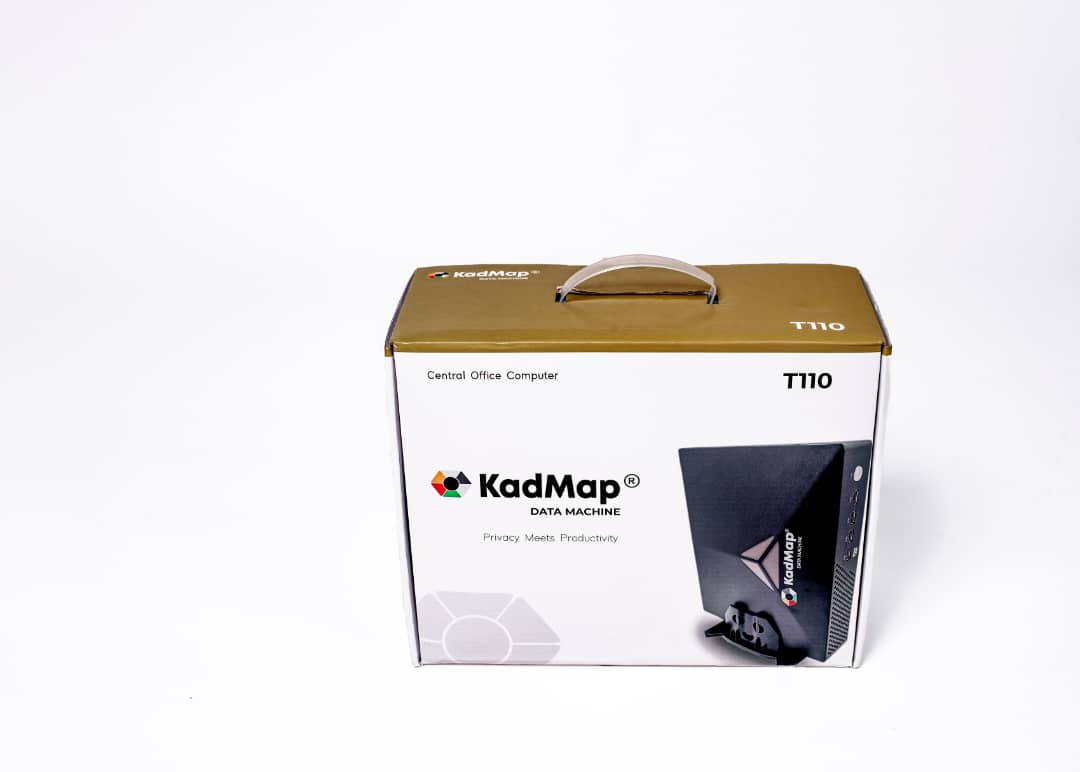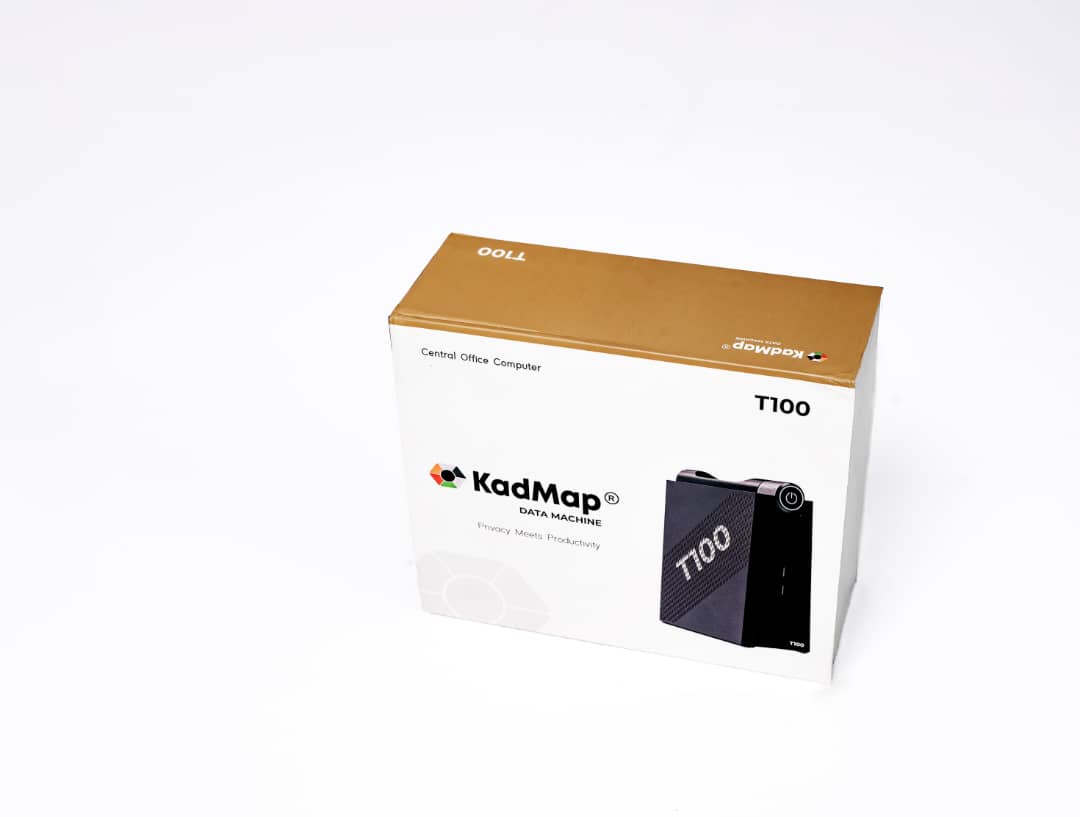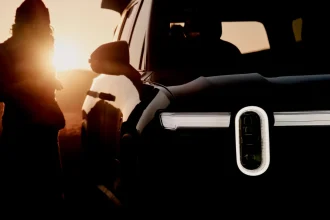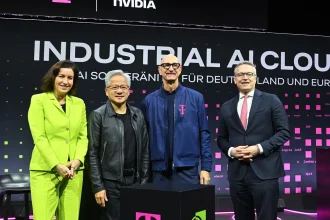At a time when most of the tech world is racing to the cloud, Dr Echezona Chukwuka is heading in the opposite direction. For the founder and CEO of KadMap Systems, the gospel of “everything to the cloud” has failed too many African businesses, locking them into expensive subscriptions, unreliable internet, and data stored halfway across the continent.
His answer is hardware. The KadMap Data Machine is a small, powerful box that stores and processes data locally; no cloud is required.
“We wanted businesses to control their own data, completely,” Chukwuka explains during the interview. “Not rent access to it.”
For years, Nigeria’s growing tech economy has been sold the same dream Silicon Valley peddled everywhere else: move fast, move online, and move to the cloud. But the infrastructure that makes that model viable in California, cheap broadband, stable power, and data sovereignty laws, is still patchy in Lagos, Abuja, or Enugu.
That reality has created what Chukwuka calls “a quiet form of dependency”. Businesses pay foreign vendors for cloud storage, lose control over sensitive information, and struggle when internet access falters.
KadMap Data Machine challenges that entire paradigm. Designed for environments where connectivity is unreliable, it’s a local data server that can support multiple users, store up to one terabyte, and run offline.
 KadMap Data Machine
KadMap Data Machine
“We’re not anti-cloud,” Chukwuka clarified. “We’re pro-choice. If your business can’t depend on always being online, you deserve an option that works.”
The idea didn’t emerge in a lab; it came from the field. KadMap’s engineers were working with data-sensitive clients in oil and gas when an older executive made a simple but striking comment, “Bring that cloud down here.”
The phrase became the company’s guiding principle.
“We kept hearing the same thing, ‘We don’t trust the web,’” Chukwuka recalls. “Hospitals, law firms, and media houses, they all wanted performance and control, not dependency.”
That realisation pushed KadMap to design a fully integrated hardware-and-software solution, something that could store, process, and protect data locally, even when the internet went dark.
KadMap Data Machine: A single device with one terabyte of storage and infinite control
The KadMap Data Machine is not just a server in a box. It’s what Chukwuka calls “a mini-cloud”. Every unit comes with a terabyte of storage, supports dozens of simultaneous users, and runs KadMap’s custom-built operating system.
From an engineering standpoint, he says, building both the hardware and the OS was essential. “We couldn’t just install software on existing machines; it would kill performance,” he explains. “We needed full control of the stack to ensure instant response and reliability.”
The approach is paying off. More than 500 businesses, he says, have shown interest in KadMap’s offline systems.
In one case study, a Nigerian company that had been paying $3,000 a year for foreign cloud services switched to KadMap. “Once they paid for the hardware, that was it,” Chukwuka says. “No subscriptions, no lockouts, no downtime.”

 Dr Echezona Chukwuka
Dr Echezona Chukwuka
The savings were immediate, but so was the shift in security culture. Employees no longer carried sensitive files home. Every data access point could be logged, monitored, and controlled.
For Chukwuka, data sovereignty isn’t just a marketing term but a national imperative.
Nigeria’s data protection laws require critical information to be stored within the country, but most popular cloud services host data overseas. That leaves local organisations exposed to both legal and operational risks.
He recalls a chilling phone call from a hospital that had been locked out of its cloud provider after a subscription dispute.
“They couldn’t access patient records,” he says flatly. “That’s when you realise control of your data isn’t just technical but existential.”
Also read: Can ‘AI Judges’ be the solution to the problems in Nigeria’s justice system?
KadMap’s devices give clients the ability to stay compliant while sidestepping the volatility of international cloud pricing. And for businesses in regions with unreliable internet, it’s not just a compliance tool, but a survival mechanism.
Chukwuka knows he’s swimming against the tide. “Everyone’s chasing fintech,” he says. “That’s where the funding is. But hardware? Enterprise software? People don’t believe it can be built here.”
He’s heard it all before, sometimes from his own potential customers. “They tell us, ‘You must be lying. Nigerians can’t build this.’”

 The KadMap Data Machine
The KadMap Data Machine
That scepticism only fuels him. A mechanical engineer by training, Chukwuka’s academic background in reliability and risk analysis has shaped KadMap’s design philosophy. Every component, he says, was chosen for resilience in the face of Nigeria’s power and connectivity issues.
Still, he’s candid about the challenges. “The talent pool here is tilted toward the popular tech sectors. It’s tough finding engineers who understand hardware-software integration,” he admits. “But we’ve proven it’s possible.”
What it means for the Nigerian tech ecosystem
Chukwuka’s work signals something larger than one company’s success. It’s part of a quiet rethinking of what technological independence means in emerging markets.
Cloud computing was supposed to democratise access. But in economies with volatile currency exchange rates and fragile connectivity, it can become another form of dependency: outsourced infrastructure with recurring bills and opaque control.


KadMap’s contrarian model, which is local, self-contained, and a one-time purchase, deals a deadly blow to that orthodoxy. It suggests that decentralisation might mean something different in Lagos than in the West.
For Chukwuka, his goal is to integrate KadMap’s systems into schools, hospitals, and public agencies, anywhere data control and cost discipline matter.
He knows adoption will take time. But he’s betting that Nigerian pragmatism will win out over Silicon Valley orthodoxy.
“When people hear ‘offline’, they think it’s backward,” he says. “But for us, it’s freedom. It means the system works whether the internet does or not.”


















